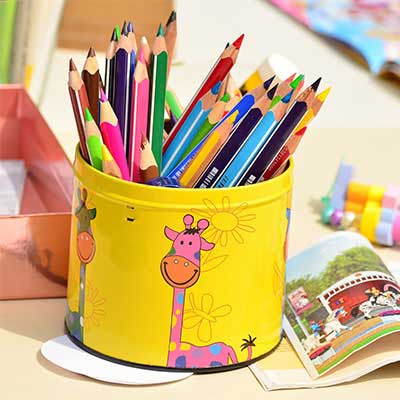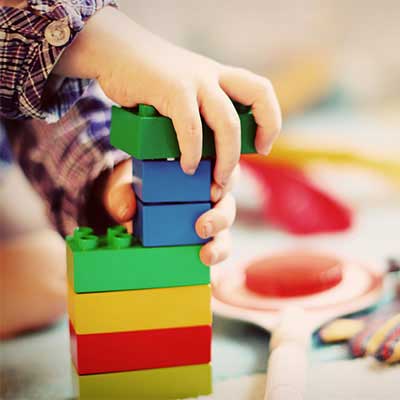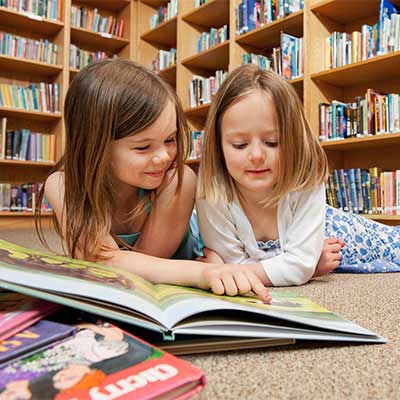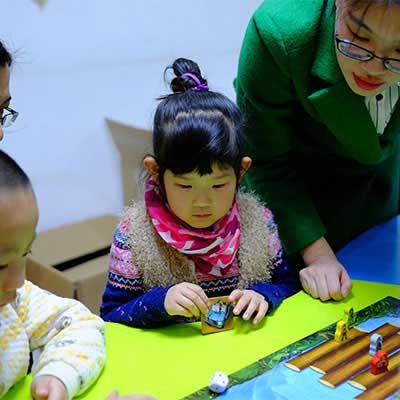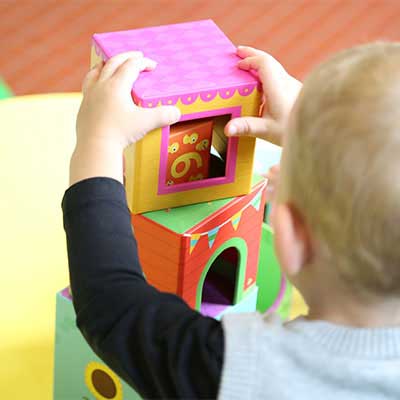About Us
About Us -
Vision And Mission:
we are committed in providing quality education to our lil learners in a playway manner, making learning fun for them.
Why Playhouse ?
The preschool age (2 to 4 years) is the most impressionable age in a childs life. The rate of brain development at this stage is more rapid than any other stage of development. 50 to 55% of a childs brain develops in the first four years of their beautiful journey of life. To develop the full potential of a child specifically in these learning years.
The lil ones require a Stimulating Environment.
Ms. Neha Kedia
CEO & Founder


An environment which provides:
- Exposure to the world outside their homes.
- Experimenting with a variety of objects,places and experiences.
- An opportunity to interact with the peer group.
- An emotionally safe and secure environment.
Whatever is being learnt at this age gets so deeply embedded in the mind of the child that it becomes difficult to erase it or change it. At this age the children are provided rich experiences on developing good habits, proper attitude and most importan, A questioning mind, An inquisitive mind.
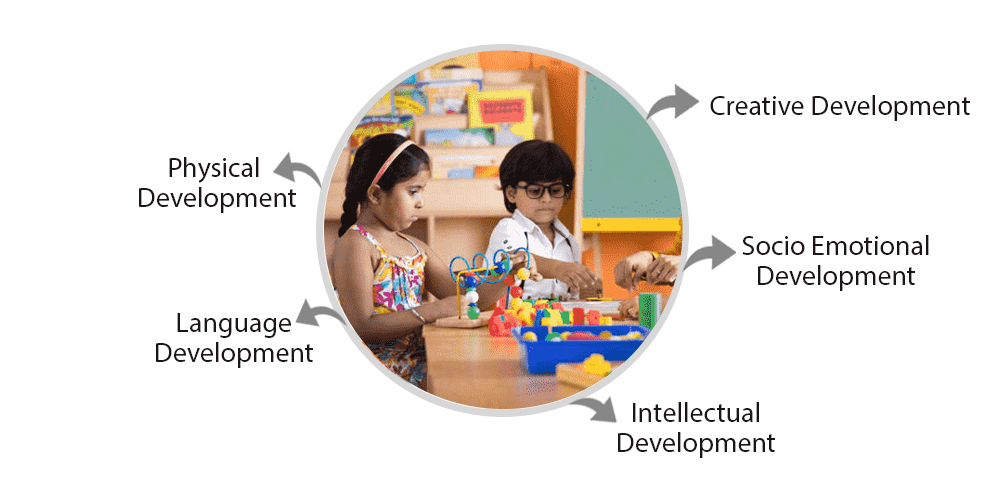
The broad objectives of the ECE programme are:
- To develop in a child, good physique, adequate muscular coordination and basic motor skills.
- To develop in a child, good health habits and basic skills necessary for adjustment.
- To develop social attitudes and manners that encourage healthy group participation. This way their emotional maturity is also attained through which they can freely express themselves.
- To stimulate intellectual curiosity so as to help him understand the world around him.
For imparting Early Childhood Education programme, the following approaches are followed in teaching:
ACTIVITY ORIENTED
This approach follows the learning by doing methodology. The key principles of ‘Learning by Doing’ are Involvement, Participation and Contribution which certainly have a longer impact on the child’s brain when it comes to development. We provide the children real life experiences through special activities that include thinking, conversation, movement and creativity.
PLAYWAY METHOD
The playway method is essentially child-oriented and caters to individual needs, interests and abilities. Play is second nature to a child. It serves as a natural way for them to explore, express and involve with the world around them. Therefore, this approach supports the all-round development of a child. The experiences in this approach also make the child an active participant and not a passive recipient in the learning process.
Our effective programme is based on the provision of concrete first hand experiences to the child. We understand that at this age, they can perceive things more effectively on a sensory level. A verbal or written description may not make much sense to the children. Which is why we plan our activities in such a way that they can learn by touching, seeing and hearing things. By play, we encourage them to classify and handle a variety of objects. The implementation of all activities take place in the following ways:
- Simple to Complex
- Familiar to Unfamiliar
- Concrete to Abstract
For Example: To learn about the fruit apple, they first see, touch and taste it. Then understand it through a 3D picture of it and finally move on to learning the world ‘Apple’ or reciting a story about it.
The approach and methodology is practiced for activities in the following domains of development:
PHYSICAL AND MOTOR DEVELOPMENT
The childhood of every child should be no less than a carnival of good memories, love and enjoyment. Natural growth occurs best when children have lots of fun
Key areas in Physical & Motor Development:
- Proper Growth To make them stronger & sharper, a balanced diet is a must. Our in house kitchen helps provide hygienic and nutritious baby friendly food which is tasted by the in charges first, then served to the little ones.
- Development of Gross Motor Skills Gross motor skills mean developing control over the movements of the large muscles of the body.
- Development of Fine Motor Skills Fine motor skills mean developing control over the movements of finer muscles, particularly finger muscles and hand-eye coordination. Activities like art & craft which include drawing, colouring, pasting as well as paper folding, thumb printing, pattern making, clay moulding and beading ensure a control over their fingers and also attain a perfect hand-eye coordination in a fun way.
INTELLECTUAL & COGNITIVE DEVELOPMENT
Children between the age of 2.5 to 5 years are at a stage of cognitive development when their thinking is governed by their perception and they learn through first hand experience of the environment
Key areas in Intellectual & Cognitive Development:
- Sensory Development The development of the five senses, i.e, seeing, hearing, touch, smell and taste is basic to the process of knowing and understanding.
- Problem Solving and Reasoning Who doesn’t love puzzles and block towers? Solving puzzles and building tall towers
- Development of Basic Concepts For holistic development, it is crucial that different concepts are clear to the students. They should be able to observe, discriminate and categorise different objects in their environment. To achieve this, we host specials days that introduce a particular concept to the students, such as, ‘Colour Blue Day’, ‘My Favourite Cartoon Day’, Helpers day ‘Introduction to shape Triangle day’ or ‘Introduction to numbers’ as a part of development of prenumber concept. Different activities are conducted on these days to help them match, identify, name, compare and classify the objects.
LANGUAGE DEVELOPMENT
What good is knowledge that cannot be expressed! Language learning provides the foundation for all later learning. By the time children enter pre-school, they are already using a language at home. We give them the right experiences and environment to increase their vocabulary.
Key areas in Language Development:
- Development of Listening Skills We conduct story-telling sessions and show the students, cartoon movies to develop their listening skills. During these sessions they also learn sound discrimination such as ‘voices of different animals’ or the sound of clapping, etc.
- Development of Vocabulary related of Body, Home and Environment The children are indulged in fun conversations and action rhymes to introduce them with the vocabulary related to their body, home and environment.
- Development of Oral Expression Free conversation is the first activity after welcome and arrival activities. Children have a lot to express about what happened at their homes after they left school the day before. They are given absolute freedom to share their experiences and talk about anything they want. This way they learn to create sentences and use correct grammar. Show and tell is yet another activity which enhances their oral expression.
- Development of Writing Skills Before children write, they need experience in handling crayons and pencils. Thus, initially, they are indulged in drawing and colouring activities wherein they develop the skills of making controlled visual motor movements. Later on, they move on to joining dots, tracing, copying forms and making patterns similar to the letters of the alphabet.
SOCIO – EMOTIONAL DEVELOPMENT
Each child has his/her own unique ‘Personality’ which is the outcome of inheritance, social/cultural groups, different sorts of interactions, regular appreciation and exposure.
Key areas in Socio-Emotional Development:
- Development of Positive Self Concept and Qualities of Initiative Independence and Leadership. This is achieved by creating a sense of individuality.
- Development of Good Personal Habits We regularly conduct story-telling sessions and puppet play that carry relevant messages of good habits.
- Development of the Self-Confidence As a part of the confidence building process, we organise many activities and events such as recitation competitions, fancy dress,class presentations . When they get an opportunity to perform in front of an audience, it automatically increases their confidence level.
- Development of ability to respect the feelings of others and relate with adults. We believe that children’s curiosity and interests are stimulated when they interact with people, places, communities and the environment around us.
DEVELOPMENT OF CREATIVE EXPRESSION & AESTHETIC APPRECIATION
Each child has inborn creativity. All we need to do is give them encouragement and opportunities for free play, particularly dramatic and constructive play which will foster creativity in them. We provide children with a stimulating environment where they can discover their talents like dancing, art and craft, music, clay moulding etc. Aesthetic Appreciation is a form of development wherein children are encouraged to appreciate their surroundings and also verbalise their appreciation about whatever they like around them. This way a positive energy can be channelised in them, which can help them in their future endeavours.
Key areas in Development of Creative Expression:
- Creative Expression through Art ‘In every work of art, the artist himself is present’. Art is one of the best ways to explore the inborn creativity of the little minds. We organise many art and craft activities for the students wherein they bring out their most creative sides. A few of them include: Drawing, Colouring, Paper Folding and Clay Moulding.
- Creative Movement To let the children feel free to express through body movements and expressions, they are indulged in dance & music sessions. Rhythmic movement such as foot stamping, finger clicking, etc, also help the children loosen up and become more free with their movements.
- Creative Thinking Every child is a dreamer with his/her own world full of imaginations and wonder. We know the value of these imaginations as it is one of the best ways to enhance creative development
Each day is planned so as to reflect a balance of individual and group activities
FACILITIES WE PROVIDE :
- FULLY A/C CLASSROOMS
- GOOD STUDENT TEACHER RATIO
- HEALTHY MEALS
- INNOVATIVE LEARNING
- SAFE AND SECURE ENVIRONMENT
- HOLISTIC LEARNING
- CHILD FRIENDLY INFRASTRUCTURE
- STORY TELLING
- CLAY MOULDING ACTIVITIES
- INTELLECTUAL DEVELOPMENT: PUZZLE SOLVING AND TOWER BUILDING
CLASSES / STAGES OF LEARNING
THE MONTHLY PLANNER FOCUSSES ON ACADEMIC SKILLS LIKE PRE NUMBERS,PATTERN WRITING, PHYSICAL DEVELOPMENT, SPIRITUAL KNOWLEDGE, HEALTH AND HYGIENE, BASIC MANNERISM, MEMORY AND OBSERVATION, PUZZLE SOLVING, TOWER BUILDING ETC.
CHILDREN PARTICIPATE IN THE ACTIVITIES OF DANCE, MUSIC, ART AND CRAFT.
THE MONTHLY PLANNER AIMS TO DEVELOP WRITING SKILLS, LOGICAL REASONING WHICH IN TURN CONTRIBUTES TO THE ACHIEVEMENT OF DEVELOPMENTAL MILESTONES IN THIS PARTICULAR AGE GROUP.

Become A Teacher
‘In every work of art, the artist himself is present’. Art is one of the best ways to explore the inborn creativity of the little minds. We organise many art and craft activities for the students wherein they bring out their most creative sides. A few of them include: Drawing, Colouring, Paper Folding and Clay Moulding.
Get Started Now